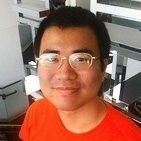 Please help us welcome Dr. Junwei Lu, who has recently joined the Department as Assistant Professor of Biostatistics.
Please help us welcome Dr. Junwei Lu, who has recently joined the Department as Assistant Professor of Biostatistics.
See what inspired Junwei to study biostatistics, his plans for his time in the Department, and what he enjoys outside of work!
What led to your decision to join Harvard Biostats?
It was the easiest decision I ever made. Being a researcher at Harvard Biostatistics is the coolest job I could imagine. Nothing could be cooler than exploring the myth of life through the magic of statistics; Nothing could be happier than getting involved in saving people’s lives through digging treasure in the data; Most importantly, nothing could be more exciting than working with the smartest group of people here to solve the most challenging problems for the greatest benefit of humankind.
Where did you grow up? Can you point to something in your life that may have influenced your decision to study biostatistics?
I grew up in Shanghai, China. A few books could mark the track lead to my current position. The first are Sherlock Holmes detective novels. They were my childhood favorite and the first time I realized the power of inference, which was well reminded by Casella and Berger’s textbook after I started learning statistics. The second is Richard Feynman’s autobiography “Surely You’re Joking, Mr. Feynman!”. I was amazed by the stories inside about how scientists worked, especially the story about how Fermi estimated the energy of the first atomic bomb by simply throwing pieces of papers during the blast. It was the first time I realized the power of estimation even if I knew nothing about statistics. The third was a magazine called Math Digest, subscribed by my high school library. From this magazine, I learned Hardy–Weinberg principle about genetic drift and Turing’s equation about animal skin patterns. It was the first time I saw the power of math in capturing the complexity of life via its simplicity and elegancy. All the remaining steps became natural to me. I want to learn, utilize and develop the power of inference, estimation and math for studying the complexity of life.
What was your previous educational and work experience before joining the Department?
I got my Bachelor degree in mathematics in Fudan University and my doctoral degree in Department of Operations Research and Financial Engineering (which is Princeton’s best statistics department) in Princeton University.
What are your main responsibilities in the Department?
To do cool research. To teach and mentor students. To help the community of the Department, School of Public Health and the infinity and beyond.
As one of my responsibilities, I would like to advertise about a reading course on “Large-Scale Optimization for Data Science” in this Fall semester 2018. Due to the high demand of implementing optimization for large-scale datasets in biostatistics, this reading course is designed to introduce the frontier of statistical optimization. Topics will cover (with 95% confidence level): Part I Convex optimization: gradient descent algorithm, proximal gradient descent, ADMM algorithm, stochastics gradient descent; Part II Nonconvex optimization: EM algorithm, escape saddle point, matrix recovery, neural network. The reading course will be casual, no homework and no prerequisites except calculus and linear algebra. Please contact me if you are interested in attending this reading course.
What do you enjoy most about your job so far and what research directions are you planning to pursue?
Public health is about assessing risk, statistics assessing randomness, and I enjoy these surprises. My research aims to develop statistically solid machine learning methods and theory for the problems in genomics, neuroscience and clinical trials. If you want to know more about my research, please do not hesitate to knock my door and I would love to talk to you face to face.
What do you enjoy outside of work?
Swimming, hiking, movies, and recently– writing jokes!



